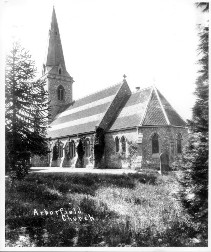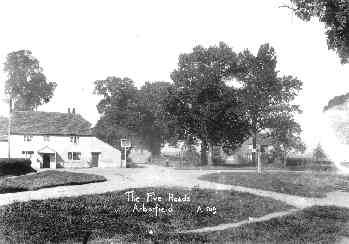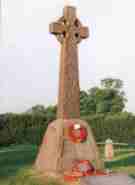|
Armistice Day
and After
The 'Mercury' hinted that the War was coming to an end in the weeks leading
up to November 16th 1918, when it was finally able to report:
READING: The Armistice was announced at noon by the Mayor on the steps
of Reading Town Hall. An evening Torchlight procession around the town included
a party of Belgian refugees. An open air service took place on the Wednesday at
noon in front of the Town Hall.
WOKINGHAM AND THE ARMISTICE
The prolonged blast of the hooter at the Saw Mills intimated to the
neighbourhood that the Armistice had been signed. Flags appeared at windows
immediately, and soon the town was ablaze with bunting, and streamers were hung
across the streets. The trains as they passed kept up a ceaseless whistling,
while from Reading and all around, hooters and whistles could be heard. People
crowded the streets, children and others bearing flags and wearing the national
colours.
The Mayor a little later announced the fact from the balcony of the Town
Hall, and the news was posted on the doors. Thanksgiving services were held
in all the churches. Albeit a dull day with drizzling rain, the crowds filled
the streets.
A body of Canadian convalescent soldiers, with drums and bugles and
flags, marched to St. Paul’s Church and joined in the thanksgiving
service held there at 4 o’clock. Proceeding later into the town, they were
greeted with much enthusiasm, and the Mayor addressed them from the balcony of
the Town Hall. He expressed appreciation of their bravery and assistance in
winning the war, and satisfaction at its happy conclusion.
Significant of the changed conditions was the fact that on Tuesday the
borough workmen were replacing the shaded street lanterns with the ordinary kind
of clear glass.
French and Belgian residents were especially delighted, and throughout
the day at the Convent, Easthampstead Road, the "Marseillaise" was sung
and cheering indulged in.
BEAR WOOD
There were scenes of almost indescribable enthusiasm at the Bear Wood
Canadian Camp throughout Monday, and the culminating point was reached at
night when Mr. Frame’s Reading Concert party, together with a number of
soldiers stationed there, provided one of the very best musical and harmonic
programmes so far permitted.
Military and naval songs and airs were the order of the evening, and each
vocalist and musician came in for his or her full mead of praise. Several toasts
were submitted during the night, that of "The King", "The Army and
Navy" and the "Boys at the Front" being vociferously cheered.
There were two further articles on November 23rd:
ARBORFIELD
Victory and the cessation of hostilities were celebrated by the ring ing of a
peal of bells at mid-day, and by a largely attended service in the evening. One
of the ringers was Private Stephen Emblen, who has served for the past
three years in France and was home on leave. ing of a
peal of bells at mid-day, and by a largely attended service in the evening. One
of the ringers was Private Stephen Emblen, who has served for the past
three years in France and was home on leave.
On Sunday the men of the 54th Squadron of the A.S.C.
attended the morning service, and again at the evening service, when there was a
large and representative congregation of soldiers and civilians. Beautiful
wreaths were placed in front of the lists of those who had served and had fallen
during the war.
On
 Friday, the 15th, the men of the A.S.C. stationed at
Arborfield, had a torchlight procession from the depot to Arborfield Cross,
which was followed by a mock trial of the ex-Kaiser and ex-Crown Prince, as well
as a display of fireworks and a large bonfire. Friday, the 15th, the men of the A.S.C. stationed at
Arborfield, had a torchlight procession from the depot to Arborfield Cross,
which was followed by a mock trial of the ex-Kaiser and ex-Crown Prince, as well
as a display of fireworks and a large bonfire.
BARKHAM: PEACE THANKSGIVING SERVICE
The first news of the signing of the armistice was received in the village by
the sounding of the Reading and Wokingham hooters and the cheers of the soldiers
of the Army Remount Depot.
The church bells sounded a gladsome peal and
messengers were sent around the parish summoning the people to church, and at
seven o’clock the church was crowded, in spite of the dark and wet night.
On
Sunday thanksgiving services were held, and in the morning there was a large
congregation, including the 61st Squadron of the Army Remount
contingent. The form of service prescribed for the occasion was used, and a
special hymn written by the Rector was sung to the tune composed by Sir Arthur
Sullivan for one of the Jubilee hymns. The collections were given to King
George’s Fund for Sailors.
Back to WW1 Main Page
Back to Memories Page

|

